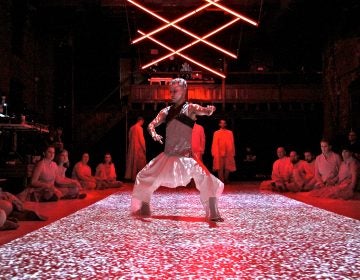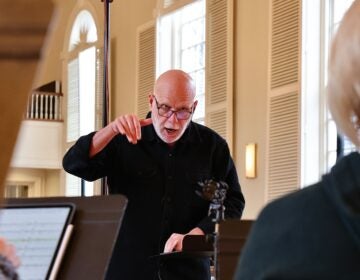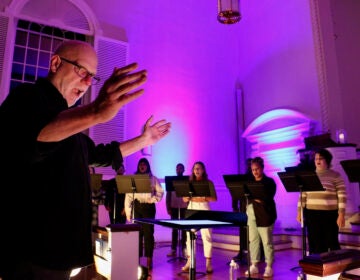The Crossing performs an elegy to Breonna Taylor and the pandemic
`We Got Time’ by Matana Roberts is an elegy to both Taylor and the year of the pandemic.
Listen 1:52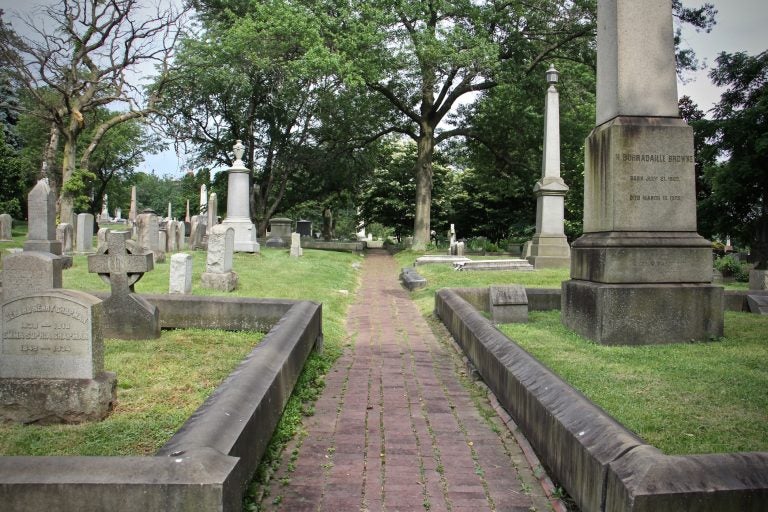
The Crossing choir invites you to stroll through the Woodlands Cemetery and experience a performance of ''We Got Time,'' an elegy for Breonna Taylor written by Matana Roberts. (Emma Lee/WHYY)
A new piece of choral music, conceived during and for the year of the pandemic, is premiering the day most pandemic restrictions are being lifted in Philadelphia.
“We Got Time” by Matana Roberts was commissioned by the Grammy-winning choral group The Crossing, in partnership with the Annenberg Center and Ars Nova Workshop. It is the second of four concerts in The Crossing’s annual Month of Moderns summer festival, all of them performed outside using a series of 24 6-foot speakers (that is, roughly human-sized) wired to the 24 singers’ individual mics.
During the performance, audience members walk a loop defined by the speakers through Woodland Cemetery in West Philadelphia as the performers sing about 30 feet away, distanced from one another as well as the audience.
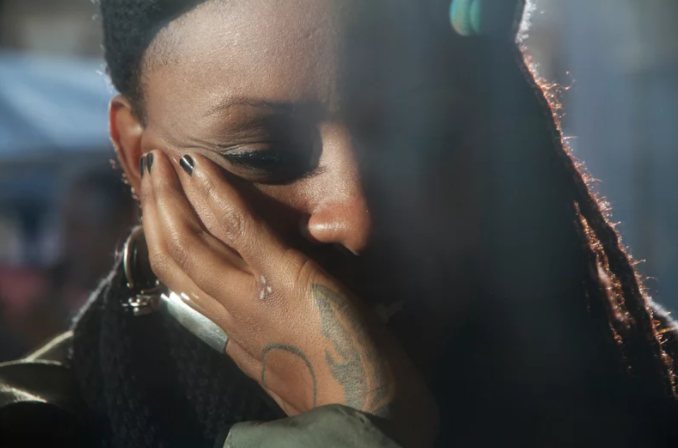
Called Echoes Amplification kits, the technology was designed by The Crossing’s sound engineer Paul Vazquez for socially distanced performances.
“Whether or not that’s necessary at this point is kind of moot,” said conductor and artistic director Donald Nally. “But actually it’s kind of fun, because you realize that you’re doing these amazing environmental pieces that you might not have done otherwise.”
Roberts wrote “We Got Time” for Breonna Taylor, who was killed by police inside her apartment in Louisville, Kentucky, in March 2020. The title comes from an outburst delivered during grand jury testimony regarding the shooting of Taylor: When a district attorney’s office investigator explained that time constraints did not allow him to show all of the police bodycam footage, an unidentified juror shouted, “We got time!”
The words sung are drawn from that grand jury hearing, street demonstrations that followed the shooting (“Say her name!”), and phrases from American founding documents like the Constitution and Declaration of Independence. The piece also features names of other Black women, who, like Taylor, were killed by police. There are melodic references to folk songs such as “This Land is Your Land” and hymns like “Pass Over to Thy Rest.”
The singers are able to electronically loop their own voices with the Echoes kit, enabling them to respond in real time to both their own voices and the voices of nearby singers. The words are often nonlinear: They don’t necessarily tell a narrative or pose an argument, but are pieced together as a patchwork of language.
“The whole idea of it is a sound quilt,” Nally said. “There’s all of these little fragments, and they get sewn together in real time. As it evolves, it becomes part of a fabric, then a swatch, and then a quilt.”
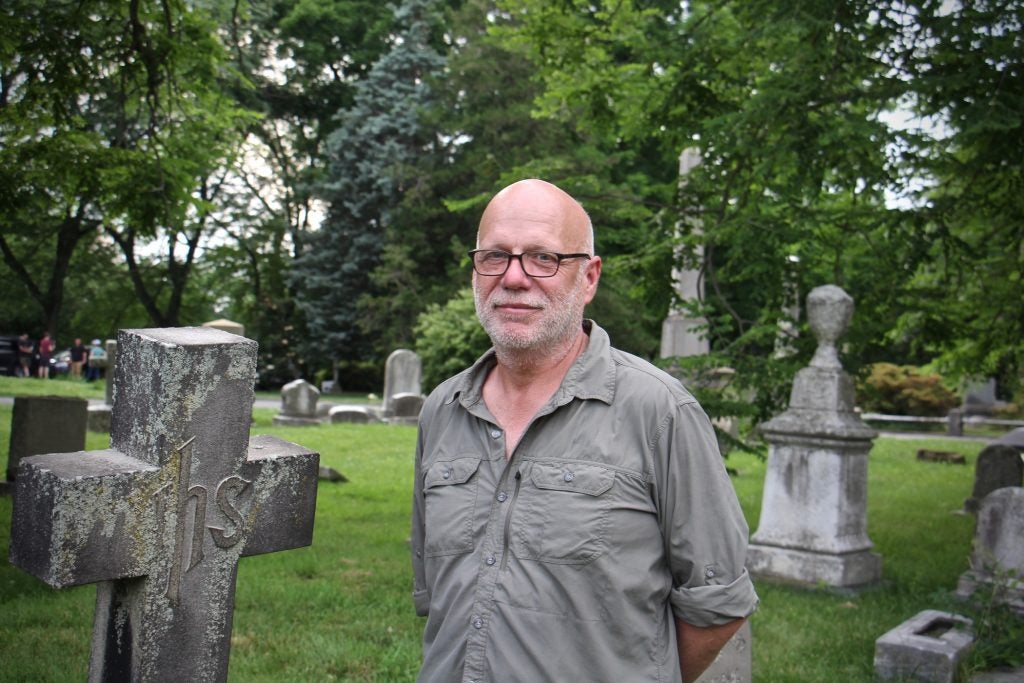
Roberts, known as an avant-garde jazz saxophonist, wrote “We Got Time” with elements of chance and improvisation. No two performances will be identical. Audience members can walk the cemetery loop at their own pace, in small groups sent out every 15 minutes as a pandemic precaution. The walk is expected to take about 30 minutes, but the entire performance lasts about 90 minutes, so the piece will be already underway when you start and will go on after you finish.
Every 14 minutes, all the singers temporarily fall silent, in unison, marking the length of time police were inside Taylor’s apartment on March 13, 2020.
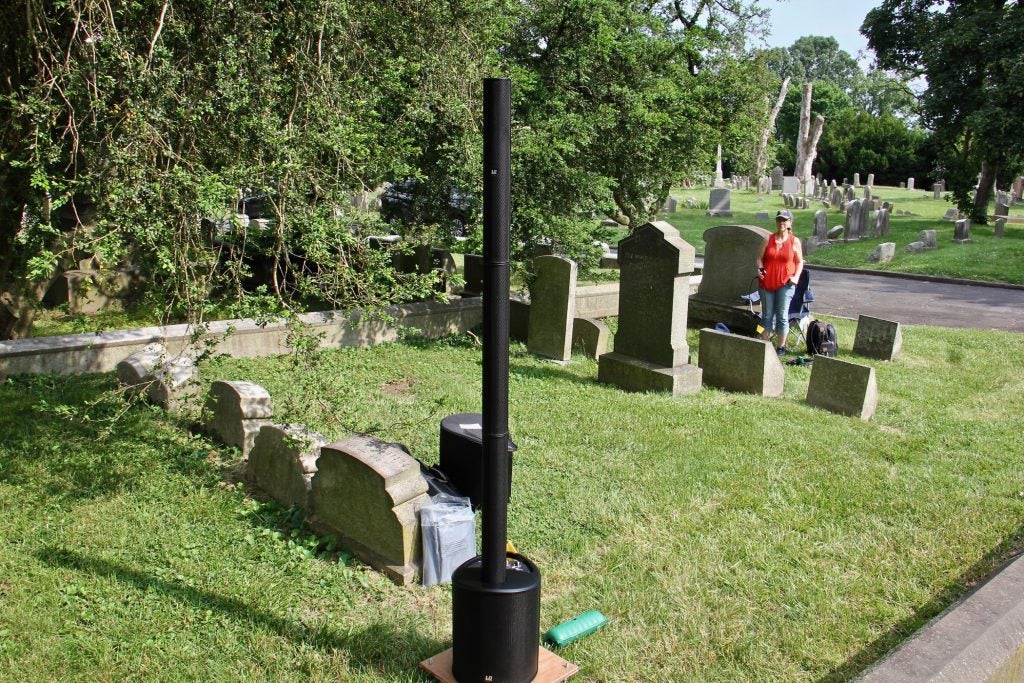
Roberts was not immediately available for comment before the premiere of “We Got Time” but has said it was written as “experimental protest music.”
“There are a number of ways people protest, right? One of them is you get pissed off, pour out into the streets, and demand change,” said Nally. “Another is to defiantly be resilient, to stay positive, and to insist that there is hope and belief that there is a better life, whether governments are going to help us to do that or not.
“This is a piece with a lot of hope, a lot of elegy, and a lot of celebration because these women had plans, they had long lives ahead of them,” he said. “This piece celebrates that spirit.”
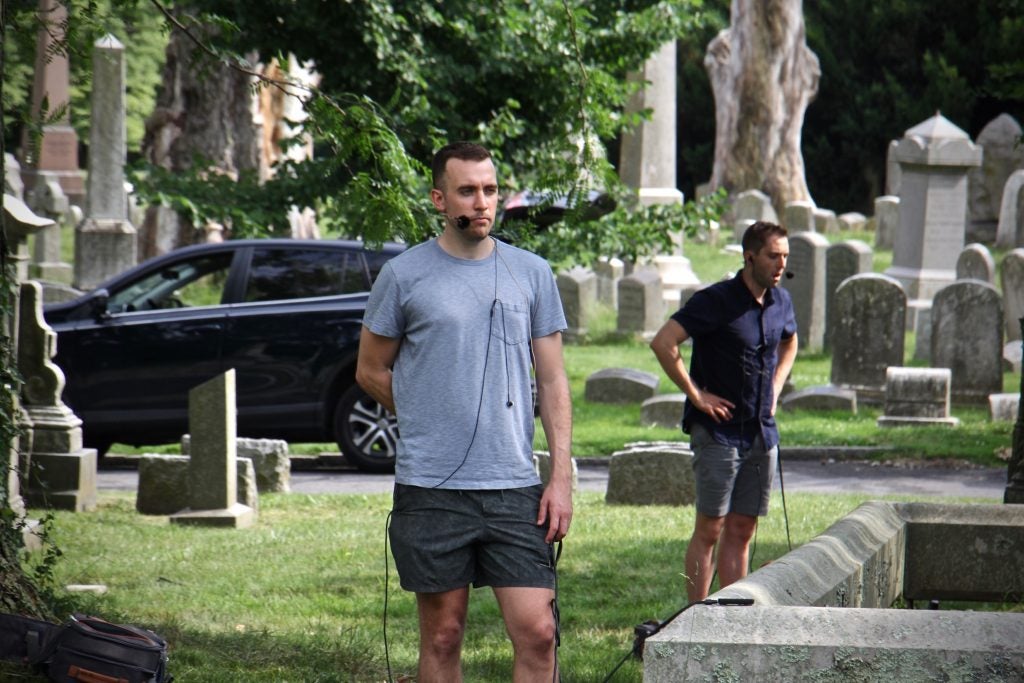
“We Got Time” was written for the Echoes speaker technology developed for distanced performance, so in a sense it was written for the pandemic. As restrictions are lifted, there will be less necessity for that technology, but Nally wants to hang onto it. It allows The Crossing the flexibility to create future installation works that center the environment rather than the singers, and it allows them to restage pieces like “We Got Time” in the future, as a way to remember both Breonna Taylor and the year of the pandemic.
“I don’t want to forget this. I don’t know anybody who hasn’t been profoundly changed by the last year,” said Nally. “They may ignore it because it’s a little too painful to face the number of times we’ve all just sat and cried. But we were profoundly changed by that, and music is profoundly changed by that. I don’t want to forget that.”

Show your support for local public media
WHYY is your source for fact-based, in-depth journalism and information. As a nonprofit organization, we rely on financial support from readers like you. Please give today.




